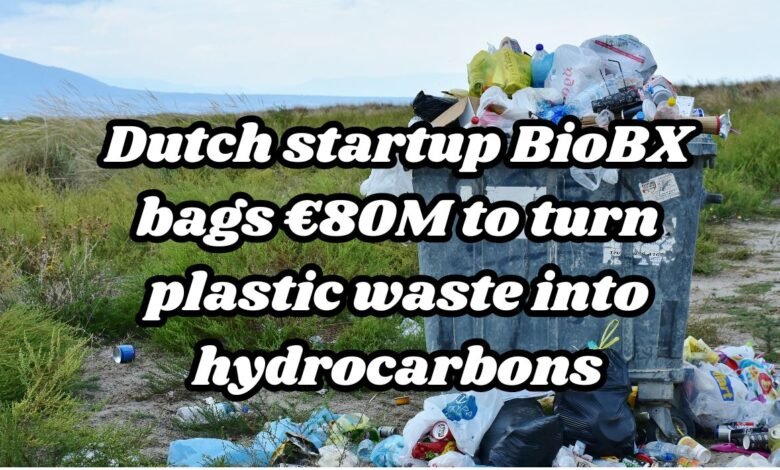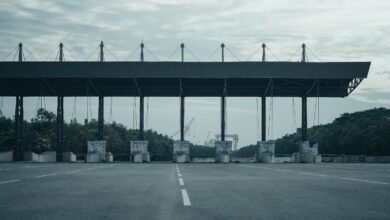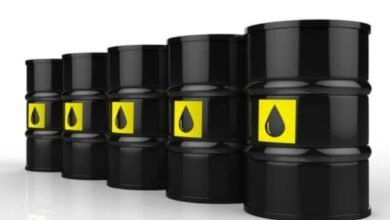Dutch startup BioBX bags €80M to turn plastic waste into hydrocarbons
Dutch startup BioBX secures €80M funding to convert plastic waste into hydrocarbons, advancing sustainable recycling solutions.

BioBX, a pioneering Dutch startup, has recently made headlines by securing an impressive €80 million in funding. With a bold vision to tackle one of the most pressing environmental issues of our time, BioBX aims to transform plastic waste into valuable hydrocarbons. The company’s mission is not only to reduce the mounting problem of plastic pollution but also to create sustainable resources that can drive future energy needs.
Plastic waste has become a global crisis, with millions of tons discarded annually, polluting oceans and landscapes. Conventional recycling methods have proven insufficient to address the scale of this issue, necessitating innovative solutions. Hydrocarbons, the fundamental components of fossil fuels, hold immense potential as they can be converted into a variety of useful products, including fuels, lubricants, and even new plastics. BioBX’s approach hinges on converting waste plastic into these versatile hydrocarbons, thus creating a circular economy where waste is transformed into a valuable resource.
At the core of BioBX’s innovation is a proprietary technology that efficiently breaks down plastic waste into its hydrocarbon constituents. This process not only diverts plastic from landfills and incinerators but also produces hydrocarbons with a lower carbon footprint compared to traditional petrochemical processes. By turning plastic waste into hydrocarbons, BioBX aims to address both environmental pollution and resource scarcity in a single, impactful strategy.
The €80 million funding will enable BioBX to scale its operations, enhance its technological capabilities, and expand its reach. This investment is a testament to the growing recognition of the need for sustainable solutions to plastic waste and the potential for innovative technologies to drive significant environmental and economic benefits. As BioBX progresses, it is poised to make a substantial contribution to a more sustainable and resource-efficient future.
BioBX employs a cutting-edge approach to tackle the escalating problem of plastic waste, utilizing advanced technology to convert this waste into valuable hydrocarbons. The core of their innovative process lies in the principle of pyrolysis, a method that decomposes plastic materials through the application of high temperatures in the absence of oxygen. This process breaks down complex polymers into simpler hydrocarbon compounds, which can then be refined and repurposed into useful products.
The pyrolysis process involves several crucial steps:
- Collection and Sorting: Plastic waste is collected and sorted to remove contaminants and segregate materials based on type and quality.
- Shredding: The sorted plastics are shredded into smaller pieces to facilitate easier processing.
- Heating: The shredded plastic is fed into a reactor where it is heated to temperatures ranging from 400 to 600 degrees Celsius in an oxygen-free environment.
- Decomposition: At these high temperatures, the long-chain polymers break down into smaller hydrocarbon molecules.
- Condensation: The resultant gas mixture is then cooled and condensed into liquid hydrocarbons, which can be further refined into fuel, lubricants, or raw materials for new plastic production.
To better understand the advantages of BioBX’s technology, let us compare it with traditional recycling methods:
| Aspect | BioBX’s Technology | Traditional Recycling |
|---|---|---|
| Process | Pyrolysis | Mechanical recycling |
| Output | Hydrocarbons (fuel, lubricants, raw materials) | Recycled plastic products |
| Waste Handling | Handles mixed and contaminated plastics | Requires clean, sorted plastics |
| Energy Efficiency | High (energy recovery potential) | Moderate |
| Environmental Impact | Reduces landfill waste, lowers carbon footprint | Can be limited by contamination and degradation |
BioBX’s technological approach not only minimizes the environmental footprint but also transforms waste into valuable resources, thus presenting a sustainable solution to the global plastic waste crisis.
The Impact of BioBX’s Innovation
BioBX’s groundbreaking technology represents a significant leap forward in addressing the pervasive issue of plastic pollution. By transforming plastic waste into hydrocarbons, BioBX not only alleviates the environmental burden caused by plastic waste but also creates a sustainable source of valuable raw materials. This innovative approach offers a dual benefit: reducing the volume of plastic waste that ends up in landfills and oceans while simultaneously producing hydrocarbons that can be utilized in various industries.
The environmental impact of BioBX’s technology is substantial. Traditional plastic disposal methods, such as incineration and landfilling, contribute to greenhouse gas emissions and environmental degradation. By converting plastic waste into hydrocarbons, BioBX’s process minimizes these harmful effects, leading to a significant reduction in carbon footprint. This technology aligns with global efforts to combat climate change and promote sustainability, making it a crucial player in the transition to a circular economy.
Beyond environmental benefits, BioBX’s innovation holds significant economic potential. The creation of hydrocarbons from plastic waste can stimulate economic growth by generating new revenue streams. Industries reliant on hydrocarbons, such as the chemical and energy sectors, stand to benefit from a more sustainable and potentially less expensive source of raw materials. Additionally, the establishment and operation of facilities utilizing BioBX’s technology can spur job creation, offering employment opportunities in engineering, manufacturing, and waste management sectors.
Real-world examples underscore the positive impact of such technologies. For instance, similar waste-to-energy initiatives have successfully demonstrated job creation and economic revitalization in regions where traditional waste management practices were prevalent. By adopting BioBX’s technology, regions rife with plastic waste issues can not only mitigate environmental impacts but also foster economic resilience and growth.
In conclusion, BioBX’s innovation addresses critical environmental challenges while offering tangible economic benefits. The technology’s ability to convert plastic waste into hydrocarbons exemplifies a forward-thinking approach to sustainability, paving the way for a cleaner, more resilient future.
Future Prospects and Challenges
The future prospects for BioBX, the Dutch startup that recently secured €80 million in funding to convert plastic waste into hydrocarbons, appear promising. With this substantial investment, the company is poised to expand its operations and technological capabilities. One of the primary areas of focus will likely be the enhancement of its proprietary technology to increase efficiency and scalability. This would enable BioBX to process larger volumes of plastic waste, thereby amplifying its environmental impact.
Potential expansions could include the establishment of new facilities in strategic locations worldwide, particularly in regions grappling with severe plastic pollution. By doing so, BioBX could not only broaden its operational footprint but also forge partnerships with local governments and environmental organizations. Such collaborations could facilitate the smoother integration of its technologies into existing waste management infrastructures, accelerating the global transition towards more sustainable practices.
However, the path forward is not without challenges. Scalability remains a significant hurdle. While the technology has proven effective on a smaller scale, replicating this success on an industrial level will require substantial logistical and financial resources. Additionally, regulatory hurdles could pose obstacles, as different countries have varying standards and regulations regarding waste processing and environmental protection. Navigating these regulatory landscapes will necessitate a robust compliance strategy.
Competition is another factor that BioBX must contend with. The field of waste-to-energy and recycling technologies is becoming increasingly crowded, with numerous startups and established companies vying for market share. To maintain its competitive edge, BioBX will need to continuously innovate and possibly explore strategic alliances or mergers to consolidate its position.
- This ‘gadgets’ list has divided government’s two key ministrie
- Eaton invests in Nordic data center power modules
- Breaking: India’s Q4 GDP at 7.8%, FY24 Growth Reaches 8.2%
Despite these challenges, the outlook for BioBX remains optimistic. The global emphasis on sustainability and the urgent need to address plastic pollution provide a fertile ground for the company’s growth. With its innovative approach and recent financial backing, BioBX holds substantial potential to make a significant, positive impact on the environment while pioneering advancements in the waste management sector.



